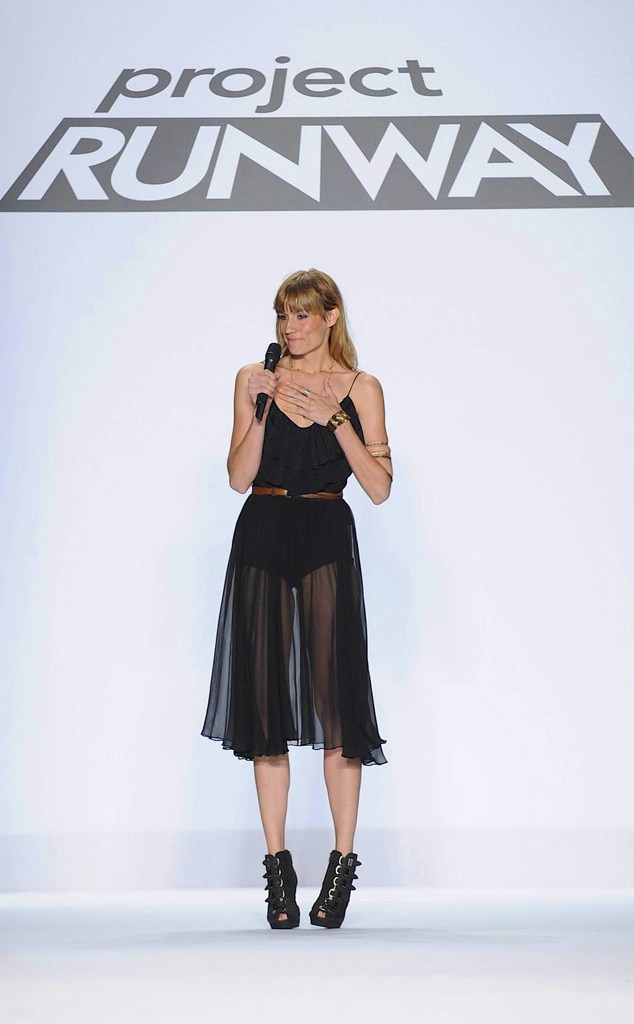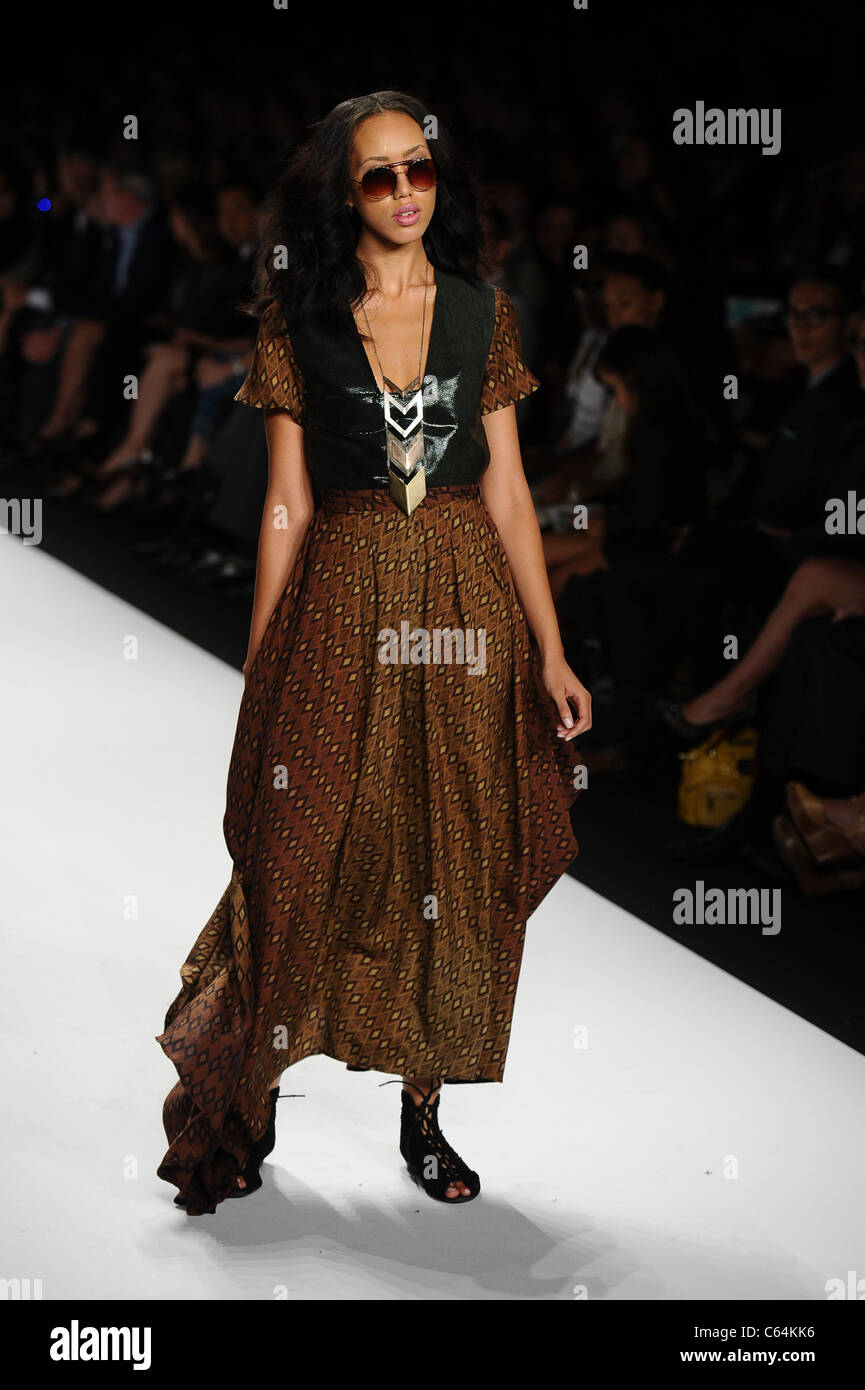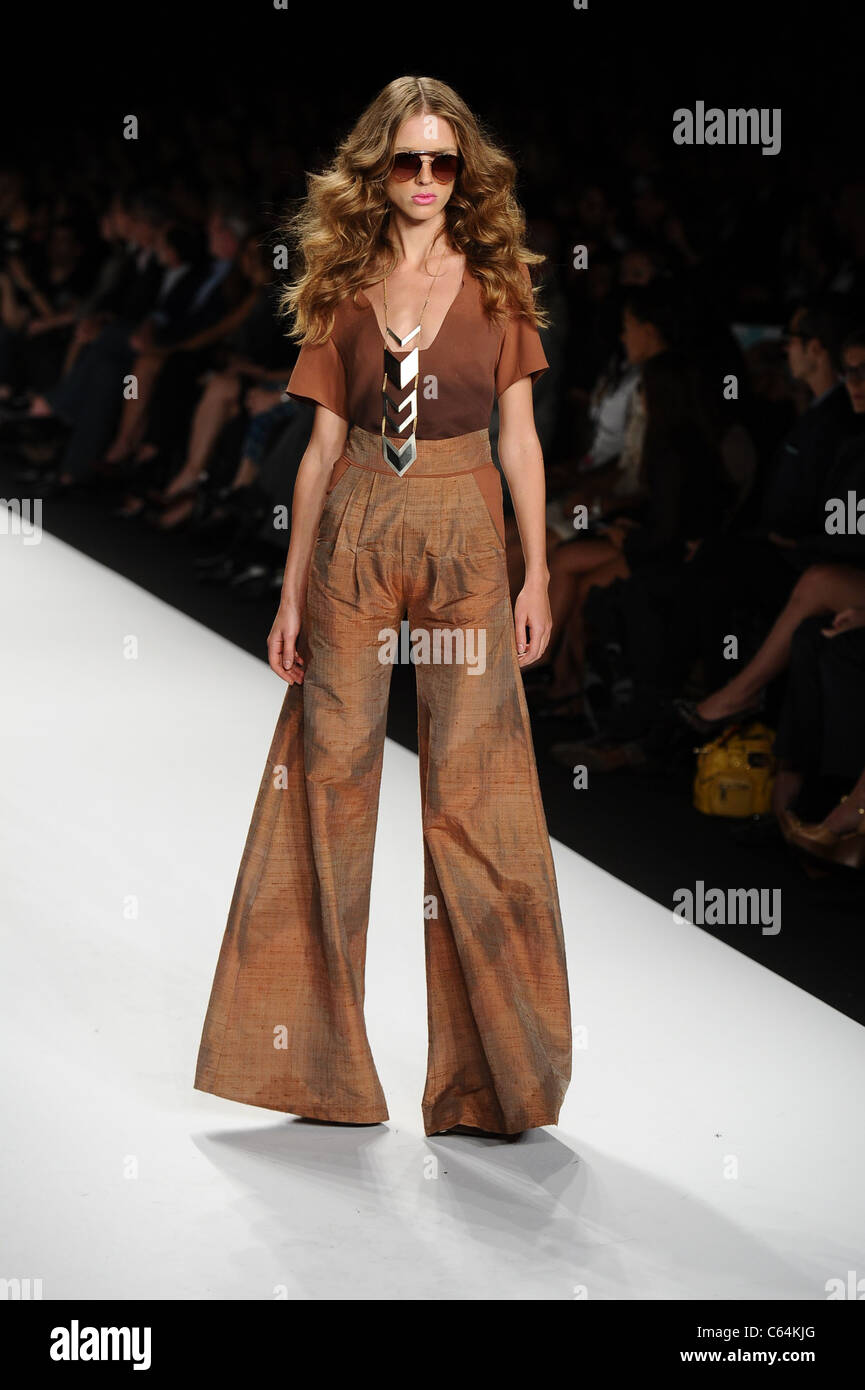Was Gretchen Jones's victory on Project Runway Season 8 a triumph of design or a masterclass in strategic maneuvering? The reality is, her win sparked a passionate debate that continues to simmer within the fashion community, proving that even years later, her designs, personality, and competitive spirit remain a potent topic of discussion.
The name Gretchen Jones immediately conjures images of sharp tailoring, a distinctive aesthetic rooted in sustainability, and a tenacity that propelled her to the top of the Project Runway ranks. Hailing from Bend, Oregon, Jones brought a refreshing perspective to the competition, often described as "bohemian rocker" aesthetic. Her designs, characterized by a blend of vintage-inspired elements and modern silhouettes, often featured a strong emphasis on natural fabrics, ethical production, and a deep understanding of construction. This commitment to her personal design philosophy was a hallmark of her brand, setting her apart from many of her competitors.
| Category | Details |
|---|---|
| Full Name | Gretchen Jones |
| Date of Birth | (Information not publicly available, though she was active in the early 2000's when she began her career.) |
| Place of Birth | Born in Bend, Oregon |
| Nationality | American |
| Education | Studied at the Fashion Institute of Design & Merchandising (FIDM) |
| Known For | Winning Project Runway Season 8, her sustainable design aesthetic, and her distinctive personal style |
| Project Runway Season | Season 8 |
| Winning Collection | Demonstrated a strong point of view with a collection of tailored pieces, leather accents, and a monochromatic color palette |
| Post-Project Runway Career | Launched her own label, Gretchen Jones, focusing on ethical and sustainable practices; collaborated with various brands; continues to design and consult. |
| Design Philosophy | Sustainable, vintage-inspired, bohemian rocker aesthetic, emphasis on natural fabrics and ethical production. |
| Notable Collections/Collaborations | Numerous independent collections and collaborations, details of which can be found on her personal website. |
| Website for Reference | gretchenjones.com (Please note that while this is likely her website, always confirm the authenticity of the site before making critical judgements) |
The eighth season of Project Runway was a crucible of talent, ambition, and ego. The competition, filmed in New York City, saw Jones face off against a formidable group of designers. The challenges tested not only technical skills but also creativity, resourcefulness, and the ability to thrive under pressure. From creating avant-garde looks to designing red-carpet gowns, the designers were pushed to their limits, constantly evaluated by a panel of judges that included Heidi Klum, Michael Kors, and Nina Garcia.
Gretchen Jones's journey on Project Runway wasn't without its controversies. Her often-strong opinions and confident demeanor occasionally ruffled feathers among her fellow contestants. Her aesthetic, while undeniably unique, sometimes drew criticism for its perceived lack of versatility. Yet, these perceived shortcomings were often balanced by her undeniable talent, her ability to execute her vision, and the overall sophistication of her collections. This ability to deliver her distinct perspective, even under the pressure of the competition, was a testament to her design prowess.
One of the most talked-about aspects of Jones's win was the perceived lack of genuine warmth from some of her competitors. Her strong personality sometimes clashed with the more collaborative approach of other designers. The finale, in particular, sparked heated debates. While many lauded the modernity and sleekness of her final collection, some felt that other designers, like Mondo Guerra, deserved the win more. Guerra, known for his vibrant personality, innovative use of print, and emotional honesty in his work, arguably gained a larger fan base. The judges' decision, ultimately, was seen by some as a victory for a specific aestheticone that prized a certain level of sophistication and polish, with a design that seemed to resonate with a more mainstream audience, even while maintaining its unique quality.
The criticism wasnt unfounded. The competition's structure, with its quick turnaround times and limited resources, inevitably favored designers who could efficiently translate their ideas into finished garments. Gretchen Jones excelled in this environment, demonstrating a clear understanding of construction, a knack for sourcing unique materials, and the ability to create pieces that felt polished and professional. Her focus on tailored silhouettes and a monochromatic color palette was a departure from some of the more flamboyant and colorful designs of her competitors, but it ultimately aligned with the judges preferences.
The selection of Jones as the winner brought a sense of predictability to the process. The show, throughout its tenure, has aimed to find a designer who could, in theory, succeed in the real fashion market. Her collection was, to many, more commercial and ready-to-wear than others. This strategic advantage was crucial during the finale, where the judges evaluated not only creativity but also marketability. Jones's ability to create a cohesive and wearable collection, as well as her obvious understanding of the business side of fashion, positioned her as the designer most likely to find success beyond the runway.
Her victory, in the end, remains a compelling case study in design. Even the harshest critics have acknowledged the lasting impact of her aesthetic and her contributions to the discussion of sustainability within the industry. The show provided a platform, but her skills, tenacity, and commitment to her vision were the true drivers of her success. While the finale may have been divisive, the enduring legacy of Gretchen Jones is undeniable: a designer who successfully navigated the cutthroat world of reality television and created a lasting impression on the fashion world. She used the platform Project Runway provided to establish her brand, advocate for her design beliefs, and encourage ethical practices within the industry.
Beyond the competition, Gretchen Jones has continued to build her brand, demonstrating her commitment to ethical and sustainable practices. She launched her own label, further solidifying her commitment to her design philosophy. Her work has often been lauded for its use of natural fabrics, vintage-inspired details, and a strong emphasis on quality and craftsmanship. This dedication to sustainable design principles is not merely a trend for her; it's a core part of her brand's identity and mission. She often speaks on these subjects, educating others on the importance of mindful consumption and ethical production. She continues to be a voice that champions responsible design and is dedicated to reducing fashions negative impacts.
The ethical and sustainable principles Gretchen Jones embraced on Project Runway have become integral to her post-show career. Her designs have consistently reflected a commitment to responsible production, and she has collaborated with brands that share her values. This emphasis on sustainability extends beyond mere environmental concerns; it includes fair labor practices, transparency in the supply chain, and a conscious effort to create long-lasting, timeless pieces. Her business model has set an example for other designers, highlighting that sustainability can be both ethical and commercially viable.
The choices that Gretchen Jones made during her time on Project Runway, from her design aesthetic to the materials she chose, have been significant. Her commitment to her vision, even when faced with doubt or criticism, is an inspiration. Her success is, in some ways, a validation of the importance of staying true to ones artistic vision. Her win has highlighted the value of a clearly defined brand identity and a distinct design point of view.
The impact of Project Runway extends far beyond the television screen, and Gretchen Jones has benefited significantly from her time on the show. Her presence helped elevate her profile, expose her designs to a global audience, and open doors to collaborations and opportunities that would have been difficult to achieve otherwise. While the show provided a boost, her enduring success reflects her talent, her business acumen, and her ability to continually adapt to the evolving demands of the fashion industry.
The influence of Project Runway on the fashion industry is irrefutable. It has brought design talent to the forefront of the public conversation and created a space for emerging designers to showcase their work. The exposure from the show has, for many, served as a catalyst to launch their careers and establish themselves within the competitive world of fashion. Gretchen Jones has undoubtedly benefited from this platform, using it to build her brand and advance her design philosophy.
As the fashion industry evolves, so does the dialogue surrounding sustainability, ethical practices, and the importance of unique design perspectives. Gretchen Jones's continued presence in the industry reinforces the relevance of these conversations and provides a model for emerging designers. Her focus on sustainable practices and her commitment to her design principles have positioned her as a leading voice in a sector that is increasingly conscious of its social and environmental responsibilities. Her legacy is ongoing, with her success being testament to the lasting power of talent, dedication, and unwavering artistic vision.
The fashion industry is constantly changing, with new designers and trends emerging. However, the enduring influence of Gretchen Jones on Project Runway demonstrates the long-lasting power of strong design, unwavering commitment to ones creative vision, and a conscious effort to create a more sustainable and ethical fashion landscape. Her career continues to inspire, and her impact is a demonstration of how designers can use their platforms to challenge norms and promote meaningful change.


